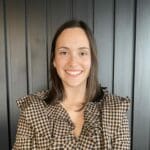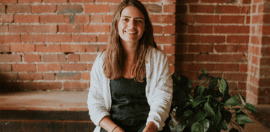In-language education aims to address health literacy gap

15 December 2022 at 3:13 pm
A government-funded health education program is helping refugee and migrant communities across the country through a network of not for profits.
A government-funded national health education program is aiming to address the health literacy gap in migrant and refugee communities.
Health in My Language, an initiative of the Multicultural Centre for Women’s Health, provides topical, inclusive and culturally-appropriate health education in over 20 languages and dialects.
The program is run in partnership with non-profits and health organisations across Australia including the Melaleuca Refugee Centre, True Relationships and Reproductive Health, Service for the Treatment and Rehabilitation of Torture and Trauma Survivors, Multicultural Hub Canberra and Regional NSW, Australian Red Cross and Ishar Multicultural Women’s Health Services.
Since its inception just six months ago, 44 bilingual educators have delivered over 700 sessions, sharing vital health messages to around 10,000 Australians from migrant and refugee backgrounds across every state and territory.
National program manager Dr Regina Torres-Quiazon said that despite Australia being one of the most culturally and linguistically diverse countries in the world, communities who speak languages other than English often face barriers to understanding health information and accessing health services.
“While most Australians trust government-issued health information, this is not often the case for those from migrant and refugee backgrounds. These communities may come to Australia for asylum after experiencing persecution or human rights abuses by their government,” said Torres-Quiazon.
“Because of this, migrant and refugee communities in Australia may disregard health messaging from the Australian government, as their past experiences can decrease their level of trust with authority.
“Because bilingual health educators are seen as members of the community, they foster a level of trust and safety that cannot be replicated by other means. Participants are often more willing to share their concerns and challenges with someone they can easily relate to, and who speaks their language and understand where they are coming from.”
The Health in My Language program was initially created to compliment the government’s efforts to provide accessible multilingual information about COVID-19 vaccines, and has expanded to include a variety of health topics, including mental health, cancer screening tests, healthy eating and consensual relationships.
Mu Lay, a bilingual health educator who speaks Karen – the language of regions in Myanmar and Thailand – said “a few participants mentioned how confusing health information was until I spoke to them in Karen about it. They were especially surprised about the number of different options for vaccines available against COVID-19”.
Sama, a bilingual health educator who speaks the Persian language of Farsi, said one participant “now realises that certain behaviours aren’t normal and can now feel confident identifying signs of an unhealthy relationship”.
After taking part in a session, participants reported feeling less alone, having greater trust in visiting health professionals, and more confidence in navigating Australia’s healthcare system. Some even said they felt valued because someone was specifically hired to speak to them in their own language.
“The sessions have also helped to break down stigma around topics often considered sensitive or taboo by creating a safe and culturally appropriate space for participants to share their stories and experiences in their preferred language,” continued Torres-Quiazon.
“In turn, the increase in knowledge in these communities can help to strengthen healthy behaviour and attitudes, and ultimately reduce healthcare spending and negative health outcomes.”
The success of Health in My Language has resulted in additional funding by the Australian government, which will enable the program to continue next year, surpassing its initial December 2022 end date and allowing more communities to make informed decisions about their health and wellbeing.







